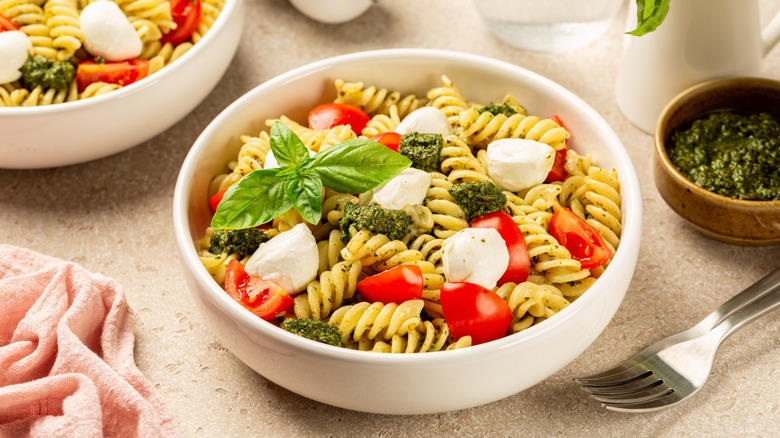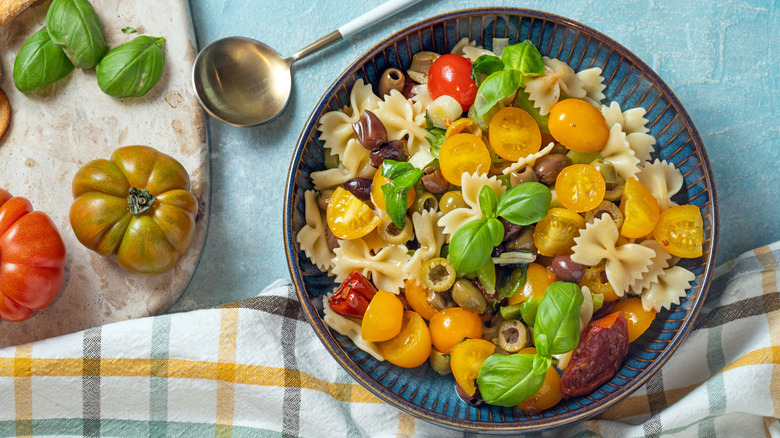Why Your Cold Pasta Salad Needs More Salt
Whether it brings back memories of backyard barbecues, raiding the fridge for a snack as a child, or serving as an ever-present side dish on the holiday table, pasta salad is a staple of American cuisine. Cold, soft pasta paired with crunchy veggies, ranging from savory to sweet to spicy, offers a rich contrast of flavors and textures. It can be as simple as tossing some Italian dressing with freshly cooked pasta or as colorful and flavorful as a Southwestern pasta salad. Whatever your preference, don't skip this one simple step when making your next pasta salad: it needs salt. A lot of it.
It's a common chef's refrain for any pasta dish: salt the water. The pasta will absorb the salty flavor as it cooks, leaving each piece subtly seasoned, instead of relying solely on added salt after cooking. Additionally, cold dishes require more salt because our taste buds detect flavors less effectively at lower temperatures. This means cold foods, like pasta salad, need extra seasoning. By generously salting your water, you evenly spread flavor throughout the dish. As an added benefit, salted water also makes pasta less sticky, so even if you're light on oil, your cold pasta salad is less likely to clump.
More tips and tricks for cold pasta salad perfection
Great pasta salad starts with the right shapes. For a vinaigrette-based salad, pastas with ridges, ripples, curls, or folds — like rotini, fusilli, penne, or farfalle — often work best because they provide more surface area to hold onto the vinaigrette. For mayonnaise-based pasta salads, smaller shapes like elbow macaroni or shells are ideal because they hold onto thicker sauces and mix more thoroughly, ensuring every forkful is fully coated.
Surprisingly, overcooking your noodles can actually make your pasta salad better. While there's debate around the ideal cooking time for dried pasta, we most often hear that it should come out a little chewy or al dente. However, while that's frequently correct for fresh, hot pastas that will continue to soften when covered with warm sauce, cold pasta salad should be slightly overcooked. When refrigerated, the starch in cooked pasta will begin to solidify again. So, by overcooking it slightly, the pasta will harden to the appropriate texture without becoming overly chewy — each piece pre-salted to perfection.


